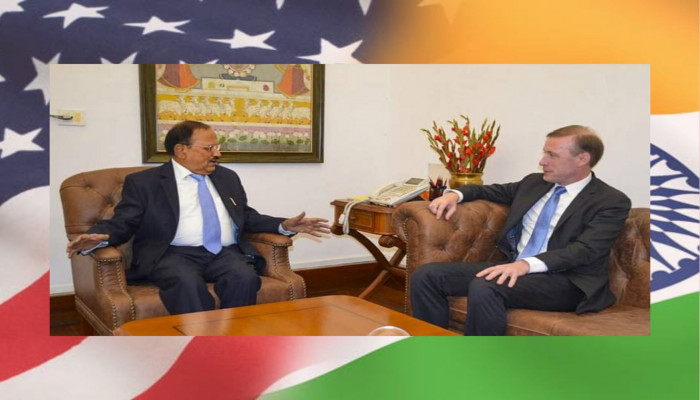US to ease restrictions for Indian nuclear entities: Jake Sullivan
- In Reports
- 10:20 PM, Jan 06, 2025
- Myind Staff
The U.S. government is taking steps to lift restrictions on Indian nuclear entities, National Security Advisor Jake Sullivan announced on Monday. This move aims to deepen energy collaboration with New Delhi and advance a 20-year-old landmark nuclear agreement.
Since the mid-2000s, Washington and New Delhi have been in discussions about supplying U.S. nuclear reactors to meet India's growing energy demands. The breakthrough came in 2007 when then-President George W. Bush signed a historic deal allowing the United States to sell civilian nuclear technology to India.
However, progress has been hindered by India's liability regulations, which differ from global norms. International standards dictate that the financial responsibility for any nuclear accident should rest with the operator of the plant rather than its manufacturer. Aligning India's liability framework with these global standards has remained a key challenge in implementing the agreement.
This latest development underscores efforts to overcome these obstacles and strengthen energy cooperation between the two nations.
"United States is now finalising the necessary steps to remove long-standing regulations that have prevented civil nuclear cooperation between India's leading nuclear entities and U.S. companies," Sullivan said at an event in New Delhi on the second day of a two-day visit.
It was not immediately clear what changes would be made to the regulation and U.S. and Indian officials did not share any further details.
"The formal paperwork will be done soon, but this will be an opportunity to turn the page on some of the frictions of the past and create opportunities for entities that have been on restricted lists in the United States to come off those lists," he added.
The United States imposed restrictions on over 200 Indian entities following India's nuclear weapons tests in 1998. Over the years, as bilateral relations strengthened, many of these entities were removed from the restricted list, according to an Indian official who spoke on condition of anonymity. However, the U.S. Department of Commerce's restricted list still includes at least four entities from India's Department of Atomic Energy, along with some Indian nuclear reactors and power plants.
India's stringent nuclear compensation laws have posed significant challenges for foreign power plant builders, often deterring potential deals. These laws were a key factor in India's decision to delay its goal of adding 20,000 MW of nuclear power, originally set for 2020, to 2030.
Despite these hurdles, significant progress has been made in recent years. In 2019, India and the United States reached an agreement to construct six U.S. nuclear power plants in India, marking a major step forward in their nuclear energy collaboration.







Comments